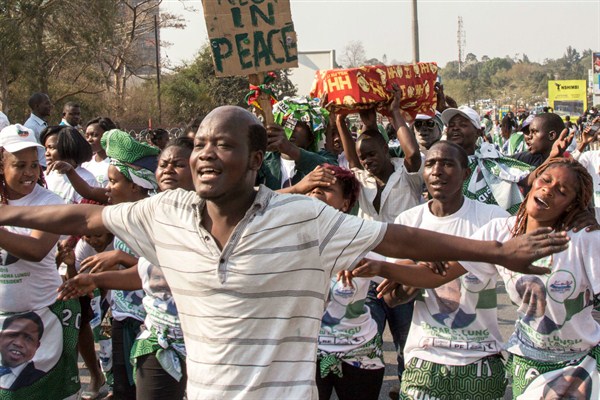The latest flare-up in Zambia’s ongoing political drama began with a high-profile case of road rage. On April 8, the motorcades of President Edgar Lungu and opposition leader Hakainde Hichilema happened to be moving along the same potholed, two-lane stretch of road in the west of the country. Footage from the encounter shows police cars swerving perilously close to Hichilema’s motorcade in an attempt to clear a path for Lungu. Hichilema’s entourage, however, continues driving forward, forcing the president to pass on the right amid blaring sirens, honking and shouting.
A few days later, the gravity of the incident—at least in the eyes of the state—became clear. Back in the capital, Lusaka, police raided Hichilema’s home, reportedly cutting off the electricity and firing tear gas while Hichilema and his family hid in a safe room. Hichilema eventually surrendered to the authorities, who accused him of treason, saying his failure to clear the road had endangered the president’s life. During court appearances this week, the allegations against Hichilema expanded, with prosecutors claiming he had been scheming for months to try to overthrow the government.
Eight months after winning a disputed election, Lungu—who first came to power in early 2015, a few months after the death in office of President Michael Sata—seems to be growing impatient with Hichilema’s incessant campaign to undermine his legitimacy. The two men have now competed in two close races: a January 2015 by-election to determine who would serve out the remainder of Sata’s term, and last year’s contest. Lungu officially won both times, but Hichilema maintains that the votes were rigged, and he rarely passes up an opportunity to refer to Lungu as an “illegal president.”

